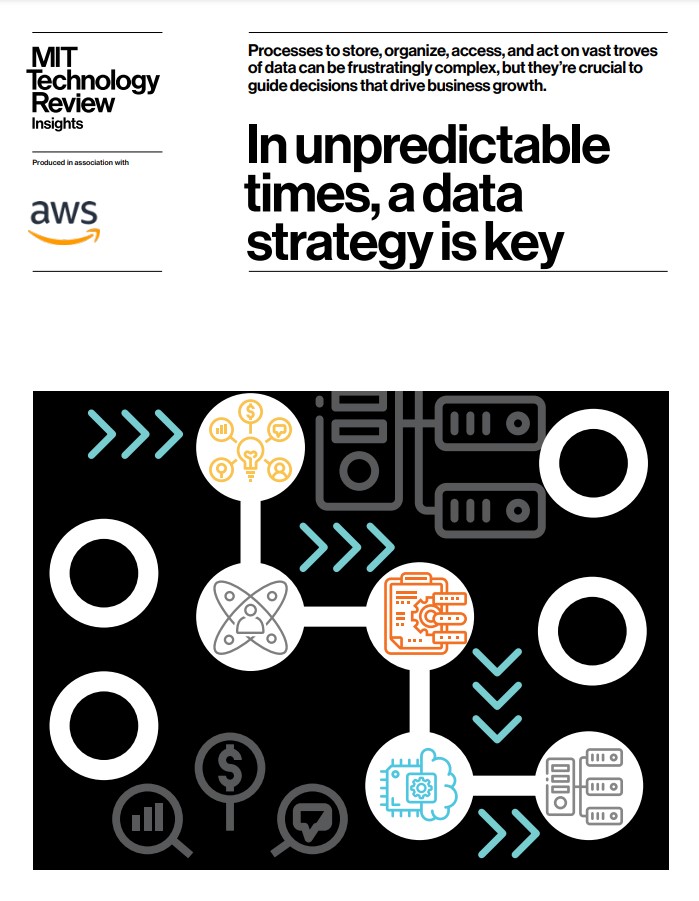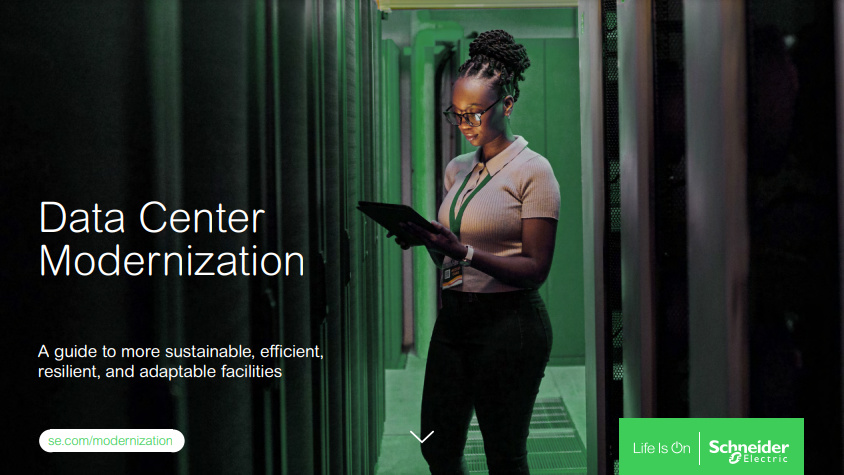Singapore's data usage set to quadruple by 2030
The country is a already an APAC leader in terms of data centre capacity


Singapore’s use of data services is predicted to quadruple by 2030, largely driven by government policies and plans.
Efforts are now underway to provide an analysis of the current economic and environmental contributions of Singapore’s data centres, as well as how the industry could evolve under different scenarios from now until 2030, as part of new research from AlphaBeta, commissioned by AWS.
Use of data services by Singapore-based businesses is expected to surge from SGD3.1 billion (£1.8 billion) in 2021 to SGD13 billion (£7.5 billion) in 2030. The finance, insurance, and health and social services sectors are expected to see the largest annual increase in cloud demand, with a 23% increase.
The report underlined that as industries increase their pace of digital transformation and their demand for data-driven services, existing data centre capacity will soon no longer suffice and new builds will be required to meet growing needs.
“This expected increase in data needs is largely driven by key policy objectives, which support greater technology adoption,” stated the report. “Singapore’s public cloud strength is critical to evolving the nation into an advanced economy with digitalised and high-tech industries.”
Evolving government needs like smart city initiatives are fast-tracking cloud adoption and usage. Since 2018, the government has migrated most of its IT systems from on-premises data centres to commercial clouds as part of a five year cloud migration plan. The shift aims to speed up delivery and improve the quality of online services for its citizens and business ecosystem.
As of 2020, over 150 systems have been migrated to a commercial cloud and over SGD870 million (approximately £530m) of contracts have been awarded in view of doubling the number of systems on commercial clouds.
Get the ITPro daily newsletter
Sign up today and you will receive a free copy of our Future Focus 2025 report - the leading guidance on AI, cybersecurity and other IT challenges as per 700+ senior executives
The pandemic also unexpectedly accelerated the government’s digital transformation and cloud needs, as citizens became reliant on remote work and home learning.
RELATED RESOURCE

In unpredictable times, a data strategy is key
Data processes are crucial to guide decisions and drive business growth
Although Singapore needs to add additional data centre capacity in the next decade, the government imposed a moratorium on any new data centre construction in 2019. The government aims to fully lift this soon, once new rules that place strict energy efficiency requirements on all new sites have been introduced.
The report highlighted that a green growth scenario, where data centres are constructed with energy efficiency in mind and are powered by renewable energy, can lead to over 2.8 times increase in the number of jobs and an 8.9 times increase in economic contribution. It may also lead to slower growth in energy consumption and 90% lower carbon emissions than today’s levels.
The report also warned that for Singapore to meet its sustainability goals, a minimum efficiency standard should be set for all local data centres to ensure the efficient use of scarce resources like energy and water. One option is to develop a Climate Neutral Data Centre Pact for Singapore, similar to what has been developed in Europe. This aims to help Singapore’s industry and economic growth in an environmentally friendly and resource-efficient manner. Importantly, it said that these innovations could be exported overseas, securing Singapore’s status as an innovation hub regionally and globally.
“There is a fast-growing need for the government and industry to jointly develop standards and set aspirational targets on energy and water efficiencies, the circular economy and clean energy — use that will help Singapore’s data centres achieve their sustainability goals,” said the report.
Why is Singapore a data centre hub?
Singapore is widely regarded as a leading data centre hub globally, largely thanks to its efficient digital and power infrastructure, business friendly environment, highly-skilled workforce, and stable political climate.
The number of data centres across the APAC region have grown at over 10% per annum in the past five years. Although Singapore hosts a smaller number of data centres than other countries in the region, it’s a leader in terms of data centre capacity. As of 2021, Singapore’s data centres have close to six million square feet of rack space, exceeding the capacity of countries that have more than double the number of data centre facilities, like Australia or Japan.
The country’s data centre industry contributes over SGD$2 billion (£1.1 billion) to its economy annually and 1.6 million jobs are supported by cloud computing services provided by local data centres. However, direct employment by data centres operations is limited, at around 25,000 jobs, but these tend to be highly technical and high paying, with wages 35% higher than the national average.
Around 7,000 multinational corporations (MNC) have placed their operational base in Singapore, of which 4,200 have regional headquarters that are largely dependent on local data centres. These centres help increase data security and resilience by reducing disaster-related and geopolitical risks for businesses located in Singapore, which is a strong motivator for MNCs to base their operations there.
Zach Marzouk is a former ITPro, CloudPro, and ChannelPro staff writer, covering topics like security, privacy, worker rights, and startups, primarily in the Asia Pacific and the US regions. Zach joined ITPro in 2017 where he was introduced to the world of B2B technology as a junior staff writer, before he returned to Argentina in 2018, working in communications and as a copywriter. In 2021, he made his way back to ITPro as a staff writer during the pandemic, before joining the world of freelance in 2022.
-
 Third time lucky? Microsoft finally begins roll-out of controversial Recall feature
Third time lucky? Microsoft finally begins roll-out of controversial Recall featureNews The Windows Recall feature has been plagued by setbacks and backlash from security professionals
By Emma Woollacott Published
-
 The UK government wants quantum technology out of the lab and in the hands of enterprises
The UK government wants quantum technology out of the lab and in the hands of enterprisesNews The UK government has unveiled plans to invest £121 million in quantum computing projects in an effort to drive real-world applications and adoption rates.
By Emma Woollacott Published
-
 National Grid investment wing backs AI startups to boost energy efficiency
National Grid investment wing backs AI startups to boost energy efficiencyNews National Grid Partners, the venture capital and innovation arm of the UK utility firm, has unveiled plans to invest $100 million in AI startups in the energy field.
By Emma Woollacott Published
-
 Scientists say they can cut data center energy use by changing just a few lines of code
Scientists say they can cut data center energy use by changing just a few lines of codeNews Researchers at Canada's University of Waterloo have found a way to reduce data center energy use by making alterations to the Linux Kernel to improve network traffic processing.
By Emma Woollacott Published
-
 “Significant concerns” raised over impact of data center growth on regional energy grids
“Significant concerns” raised over impact of data center growth on regional energy gridsNews Scenarios for AI energy consumption in the next decade show potential capacity issues
By Solomon Klappholz Published
-
 The AI disruption: Challenges and guidance for data center design
The AI disruption: Challenges and guidance for data center designWhitepaper Energy Management Research Center
By ITPro Published
-
 Cutting power bills and emissions with a modernized and efficient IT infrastructure
Cutting power bills and emissions with a modernized and efficient IT infrastructurewhitepaper Driving a rethink of how to build and operate our IT platforms
By ITPro Published
-
 Why energy efficiency could be key to your business’ success
Why energy efficiency could be key to your business’ successSupported editorial An energy efficient data center setup can help save on bills, but the benefits don’t have to stop there
By ITPro Published
-
 Shaping your sustainable data center
Shaping your sustainable data centerwhitepaper A guide to more sustainable, efficient, resilient, and adaptable facilities
By ITPro Published
-
 Princeton Digital Group reveals "wise" $1 billion+ Indonesia data centre investment to service Singapore
Princeton Digital Group reveals "wise" $1 billion+ Indonesia data centre investment to service SingaporeNews The new investment will help customers located in Singapore expand their infrastructure
By Zach Marzouk Published